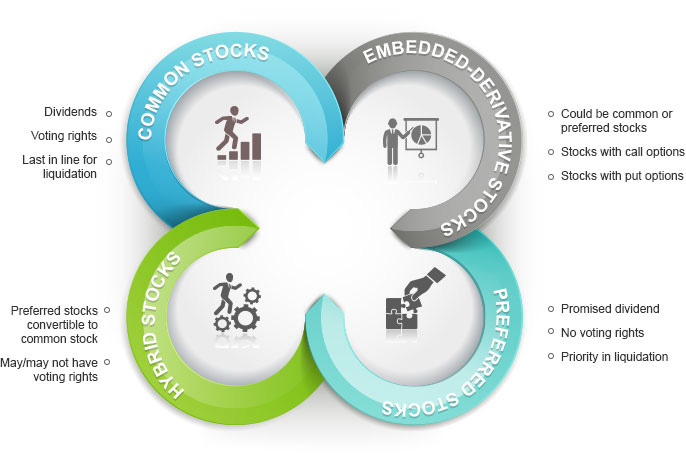The shares together form stock. The stock of a corporation is partitioned into shares, the total of which are stated at the time of business formation. Additional shares may subsequently be authorized by the existing shareholders and issued by the company. In some jurisdictions, each share of stock has a certain declared par value, which is a nominal accounting value used to represent the equity on the balance sheet of the corporation. In other jurisdictions, however, shares of stock may be issued without associated par value.
Shares represent a fraction of ownership in a business. A business may declare different types (or classes) of shares, each having distinctive ownership rules, privileges, or share values. Ownership of shares may be documented by issuance of a stock certificate. A stock certificate is a legal document that specifies the number of shares owned by the shareholder, and other specifics of the shares, such as the par value, if any, or the class of the shares.
In the United Kingdom, Republic of Ireland, South Africa, and Australia, stock can also refer to completely different financial instruments such as government bonds or, less commonly, to all kinds of marketable securities.

New equity issue may have specific legal clauses attached that differentiate them from previous issues of the issuer. Some shares of common stock may be issued without the typical voting rights, for instance, or some shares may have special rights unique to them and issued only to certain parties. Often, new issues that have not been registered with a securities governing body may be restricted from resale for certain periods of time.
Preferred stock may be hybrid by having the qualities of bonds of fixed returns and common stock voting rights. They also have preference in the payment of dividends over common stock and also have been given preference at the time of liquidation over common stock. They have other features of accumulation in dividend. In addition, preferred stock usually comes with a letter designation at the end of the security; for example, Berkshire-Hathaway Class "B" shares sell under stock ticker BRK.B, whereas Class "A" shares of ORION DHC, Inc. will sell under ticker OODHA until the company drops the "A" creating ticker OODH for its "Common" shares only designation. This extra letter does not mean that any exclusive rights exist for the shareholders but it does let investors know that the shares are considered for such, however, these rights or privileges may change based on the decisions made by the underlying company.